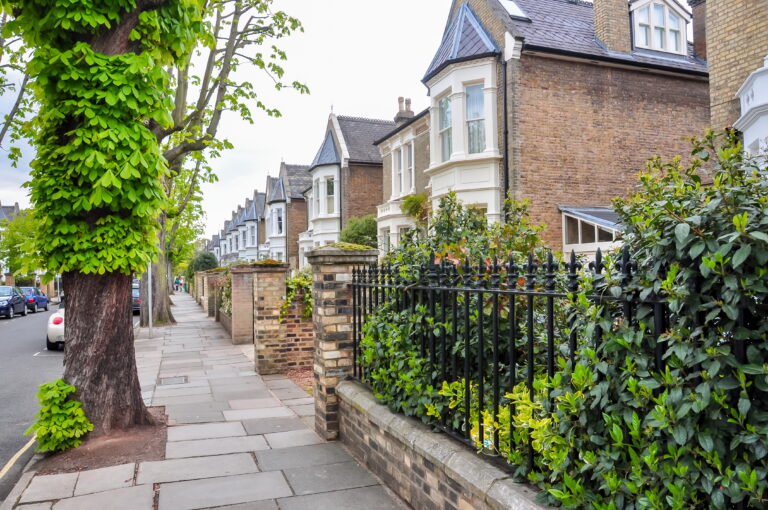Paying off your mortgage early is a great way to save money because you’re not constantly accruing interest on your loan. Owning your home outright can feel incredibly reassuring, but it’s worth considering all your options before you make any changes to your mortgage deal and monthly repayments.
Read our guide below to explore the various ways in which you can pay off your mortgage quicker and save yourself money in the long run.
Ways to pay off your mortgage quicker
1. Overpay your mortgage
Paying a little extra towards your mortgage each month is a great way to bring down the total amount you owe. This little and often approach doesn’t feel like a big dent in your monthly budget, but it can make a big difference to the amount you pay back overall by eating into your loan as well as the interest that builds on it over time.
Some people like to round up their monthly payments. For example, if your monthly repayment amount is £843, they might round this up to £900. If you can afford to do this it can make a big difference, however the great thing is that you don’t have to keep up with these higher payments when times are difficult. If you suddenly have extra costs coming in, you can simply stick to your original repayment amount.
2. Shorten your mortgage term
You can choose a shorter mortgage term when you remortgage your property, which means that you’ll pay back the loan over fewer years. The knock-on effect of this is that your monthly mortgage repayments will be higher so it’s important to fully budget to make sure that you can afford these larger payments. A shorter mortgage term also means that you’ll pay back less interest on the total amount because there’s less time for it to build up.
3. Remortgage
Remortgaging can often save you money because you can benefit from the best deals that are available right now. Many people remortgage when they reach the end of a fixed-rate deal with their current provider in order to get better interest rates. Additionally, if you have some savings, you could use these to reduce the amount you’re borrowing.
By remortgaging you can sometimes get better interest rates, renegotiate your mortgage term and your monthly payments to ensure that you’re doing all you can to pay off your loan faster. However, it’s important to make sure you can afford to keep up with the new payments, so be completely realistic when you’re budgeting for this and always give yourself some leeway for unexpected costs.
4. Use extra income
If there are times when you have extra money coming in then you can use this to make an extra payment towards your mortgage. Some people get a work related bonus or a tax refund and these pockets of money can make a big difference to the amount of mortgage and interest you owe.
Talk to your current provider about overpaying on your mortgage and find out if there are any early repayment fees associated with it. Many lenders allow you to overpay up to 10% of your loan without penalty.
5. Make an extra payment each year
Most mortgages are set up for monthly repayments so the majority of people make 12 mortgage payments a year. However, you could save up throughout the year to pay off an extra month’s worth of your mortgage.
Alternatively, you could contact your provider to get yourself set up to pay half your monthly amount every two weeks. This bi-weekly set up means that you end up making 26 payments every year, which results in one extra monthly repayment overall.
6. Reassess your monthly budget
Take a good, honest look through your monthly outgoings and cut down on any areas of spending that you can. You don’t need to make massive changes, but finding small amounts that can go towards your monthly repayments can make a big difference in the long run. Just ensure that you’re realistic and that you don’t end up paying too much on your monthly repayments. You still to make sure that you can cover everyday costs, such as food and energy bills, and you also need a buffer for any unexpected costs that might arise.
Benefits of paying off your mortgage early
· Financial freedom
Monthly mortgage payments are generally the biggest ongoing cost that homeowners have, so when you don’t have to make this monthly payment you’re in a much stronger financial position. Once you’ve paid off your mortgage, the money that you would have spent on your monthly repayments can be used for anything you like. You can travel more, reduce your work hours, retire earlier, invest in a new business, pay for your children’s tuition fees or build up your savings.
· Save on interest payments
Interest builds up on all mortgage loans so by paying off your mortgage early you’re also ridding yourself of the extra costs of interest payments, and these can be significant.
· Owning your home outright
Owning your home completely is a strong position to be in and it means that you’re never in danger of losing your home. It also means that if you sell your property, all of the proceeds will be yours to do whatever you want with. You can buy another home elsewhere, downsize and keep the profits, or rent for a while to give yourself extra freedom.
· Peace of mind
Knowing that your housing situation is safe and completely paid for provides a huge sense of relief and takes away a large amount of pressure. Feeling secure in the knowledge that your home is fully paid for can completely change the way you live your life. It can free you up for retirement, or give you the opportunity to travel or try something new.
· Build up savings
Mortgage payments are often people’s biggest outgoing monthly cost. By paying off your mortgage you’ll free up a lot of money every month and all or part of this can be set aside into a high interest savings account or ISA.
· Equity
Once you’ve fully paid off your mortgage there’s a lot of money safely protected in your home. However, if you find yourself suddenly in need of a large amount of money you can tap into this equity and get a quick cash release. Reasons you might need to do this include making home improvements, adapting your home for accessibility reasons or to help your children financially.
· Settle debts
By having extra money available each month, you’ll be able to clear off any other loans or credit cards that you have. This means that you’ll save money on any interest that’s building up on these debts. Also, with energy bills increasing you can feel more confident that you’ve got enough to cover utility bills and other ongoing costs too.
· Insulation from the housing market
Homeowners are always affected by the wider economic climate because it impacts their mortgage deals and interest rates. If the housing market takes a turn for the worse, monthly payments can go up and they can be hard to cover. However, if your mortgage is already paid off, you’re insulated from these ongoing changes. Your house might go down in value, but you can wait it out without the financial strain of higher monthly payments.
If you’re considering what to do about your mortgage payment options, the best place to start is to find out how much your home is worth in today’s market. Contact us now to book in a free property valuation – we look forward to hearing from you




